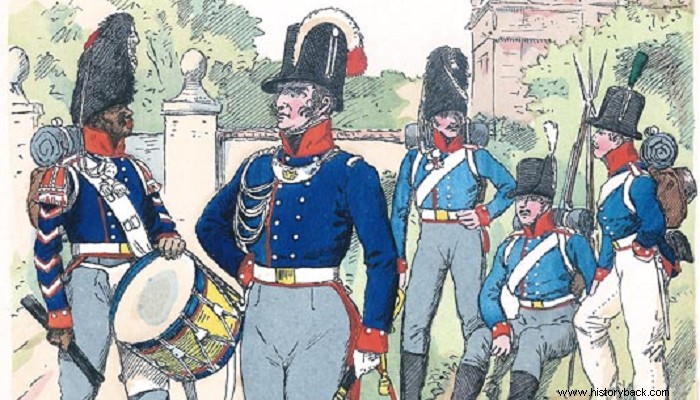
The Duchy of Oldenburg was one of the small German states that made up the Holy Roman Empire of the German Nation. It extended over a small area on the western shores of the Baltic, north of Bremen.
The small duchy had a small army, consisting of only one infantry company and some garrison forces, supplemented by one more infantry company. With the start of the wars of the French Revolution in 1792 and until 1806, Duke Peter Frederick Louis managed to keep his small state out of the wars that shook Europe.
However, in 1806, after the crushing of Prussia by Napoleon, the facts changed drastically. Having crushed Austria in 1805 and Prussia in 1806-07, Napoleon decided to create a new political formation within the once German empire. Thus he created the Confederation of the Rhine, which was joined, willingly or unwillingly, by most of the German states.
The Duchy of Oldenburg nevertheless managed to resist French pressure until 1809. Then the duke was forced to accept French "protection". As part of its obligations as a member of the Confederation, the duchy had to provide for the common defense a full infantry battalion with 6 companies. The 1st company was a company of pickets (grenadiers) and the 6th company of snipers.
The other four central, so-called, companies were musketeer companies. The men's uniforms were of the Prussian type, dark blue in color, with red cuffs. The grenadiers wore a tall, black fur hat and the other men a Corsican-style pelisse. The fittings were leather painted white. The men carried French muskets.
When war broke out against Austria in 1809, Napoleon ordered the mobilization of the duchy's forces. The small forces of the duchy were called upon to face the German rebels of the Duke of Braunschweig, who were acting in favor of the Austrians and who, pursued by the French, rushed to the shores of the Baltic in order to board British ships.
The Duke of Oldenburg, however, ordered his men to avoid any conflict with their German compatriots. Napoleon, particularly angry, made his decisions and in 1810 occupied the duchy and forcibly enrolled his soldiers in the 129th French Infantry Regiment.
The duke managed to escape and fled to Russia. The Oldenburgers formed the 1st Battalion of the said Regiment. Later two more battalions were formed, mixed with Oldenburgers and Germans from Bremen, Hamburg and Lübeck. The regiment was sent in 1812 to Russia, where it was destroyed. In 1813 the French, defeated by the Russians and their Prussian allies at Leipzig, abandoned Oldenburg.
On 27 November 1813 the duke returned to the city and immediately raised a regiment of two battalions – one of infantry, one of national guard – which he placed at the disposal of the allies of the anti-French coalition. Each battalion had a strength of 800 men. The regiment, under Colonel Wardeburgh, took part in operations in 1815, at Bouillon, Mézières and Sedan, invading France and avenging the rigid French occupation.
